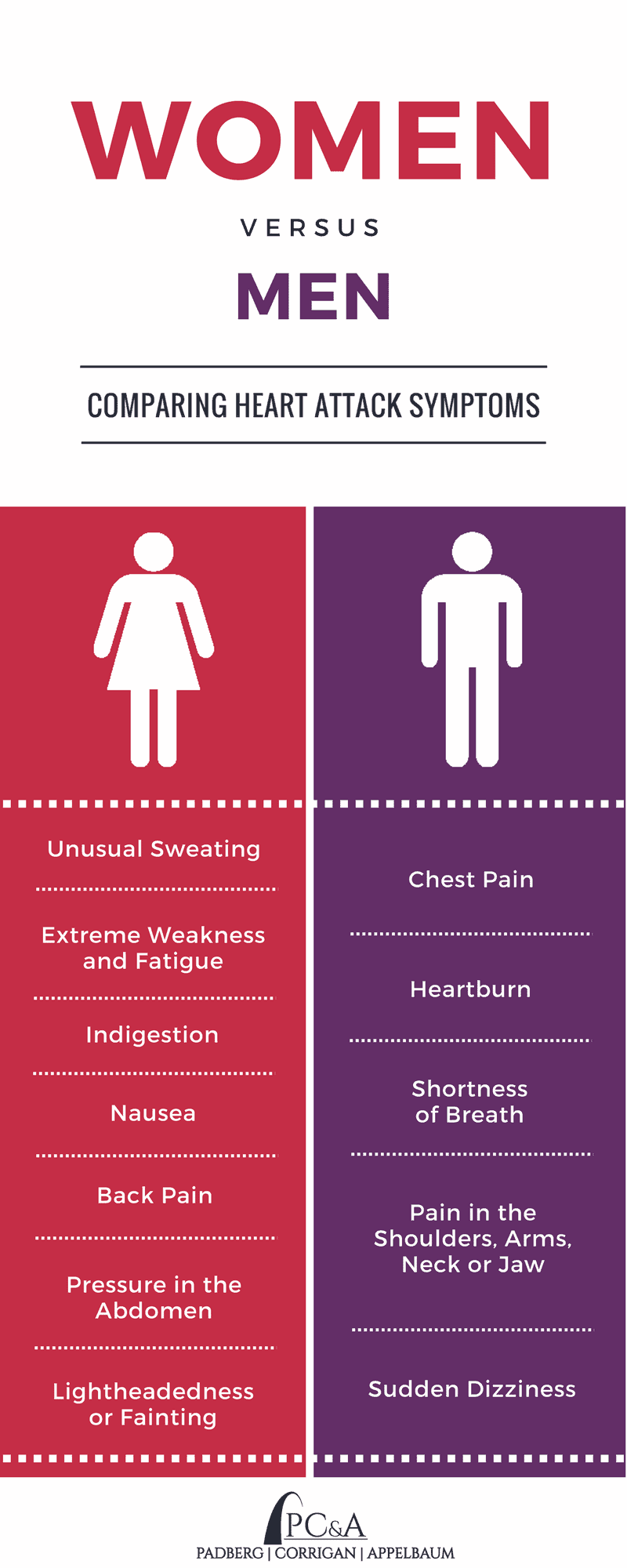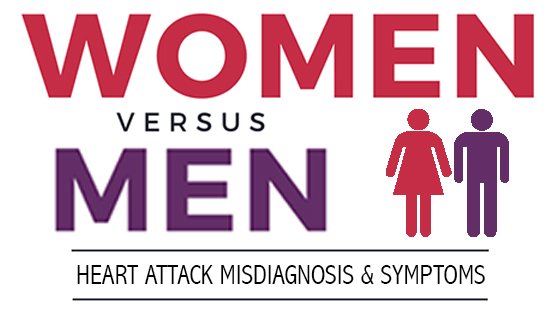Picture this: a middle- to upper-aged man, grabbing his left arm. With pain in his face, he bends forward to prevent himself from falling. That is the image most people have in their mind when they think about a heart attack. The reality? Heart attacks also affect women, can happen at any age and aren’t always as sudden or intense.
In 2016, the loss of both Zsa Zsa Gabor and Carrie Fisher helped raise awareness of the prevalence of heart attacks among women. In fact, one of the main causes of heart attacks is heart disease, which kills more women each year than anything else, including all forms of cancer combined. The high mortality rate of heart disease can be attributed to a few things, but one of the most surprising is that women are more likely than men to be misdiagnosed and mistreated for a heart attack.
Heart Attack Symptoms in Men and Women
While the intense scenario explained above can happen to women and men alike, heart attacks in women are more likely to start slowly with only mild discomfort throughout the attack. It is important to know all types of symptoms and how they can affect men and women differently.

Why Women Are Often Misdiagnosed
Many common symptoms women experience during heart attacks are also typically associated with other illnesses, such as the flu, stress or heartburn. For that reason, women often overlook the discomforts. But time is of the essence when treating a heart attack and women may miss life-saving treatments if they delay or decide not to call 9-1-1 for help. Emergency personnel and medical doctors are equipped to test for a heart attack with an electrocardiogram (ECG, formerly known as an EKG), as well as administer nitroglycerin, aspirin, heparin or thrombolytic agents.
For women who do seek medical attention, doctors may fail to recognize the severity of the symptoms and misdiagnose the condition. A study published in the New England Journal of Medicine found, “women are seven times more likely to be misdiagnosed and sent home from the Emergency Department in mid-heart attack compared to men.” When a doctor misdiagnoses a heart attack, it can be fatal or cause lasting heart problems.
For example, Padberg Appelbaum Knepper successfully represented the family of a 50-year-old woman who died as the result of a heart attack misdiagnosis. The victim was an average weight and height and had a family history of stroke/heart disease. She did not have a history of commonly seeing her medical doctor, so when she went to the doctor with complaints of severe heartburn and jaw pain, it was not characteristic of her past behavior. Her heartburn was getting worse and was not relieved or aggravated by anything, including medication, certain foods or laying flat. After the doctor evaluated the victim, the doctor did not perform an ECG. Instead, the victim was prescribed a medication for gastric esophageal reflux disease and sent home. That evening, she went to bed and died of a heart attack in her sleep. The lawsuit settled and the family received monetary compensation to help with the financial stresses and emotional pains of their loss.
The medical error of a misdiagnosis can result in a medical malpractice or wrongful death lawsuit. An experienced law firm that handles cases against doctors and medical practices, such as Padberg Appelbaum Knepper, can help determine if there was negligence based on the facts of the case.

